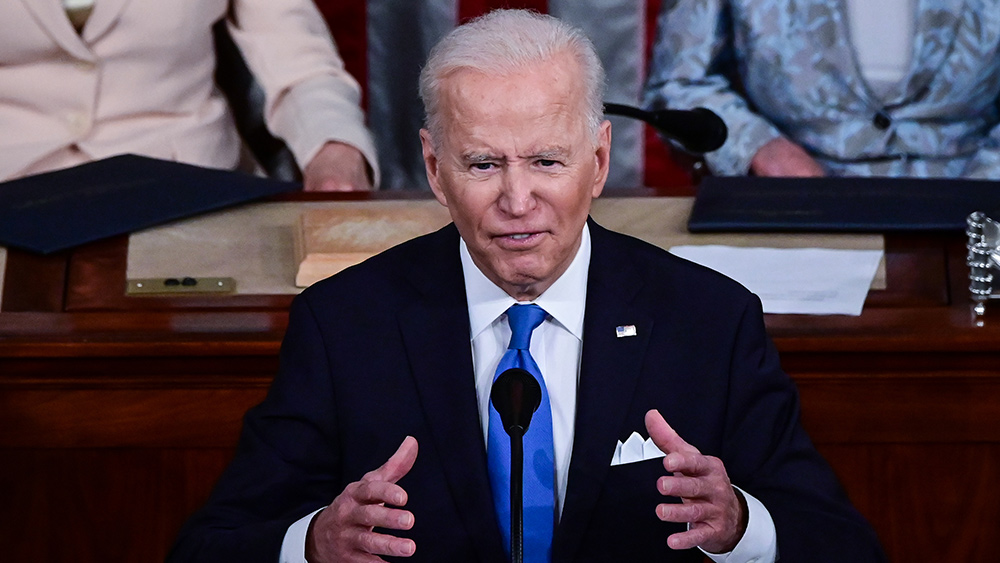WHO warns against boosters, says strategy “not viable” for new variants
01/18/2022 / By Ramon Tomey

The World Health Organization (WHO) recently issued a warning against the Wuhan coronavirus (COVID-19) vaccine boosters.
In a January 11 statement, the WHO’s Technical Advisory Group on COVID-19 Vaccine Composition (TAG-CO-VAC) said: “A vaccination strategy based on repeated booster doses of the original vaccine composition is unlikely to be appropriate or sustainable.” The advisory group cited near- and medium-term supply of available vaccines, vaccine equity and the virus’ continued evolution for its recommendation.
The global health body established TAG-CO-VAC in September 2021 to scrutinize “the public health implications of emerging variants of concern (VOCs) on the performance of COVID-19 vaccines” and make suggestions on the vaccines’ formulation. According to TAG-CO-VAC, injecting fresh doses of the currently available COVID-19 vaccines amid the emergence of new variants is not the best way to fight the pandemic.
TAG-CO-VAC said vaccines preventing infection, transmission, severe disease and death need to and should be developed. It added that these vaccines should “elicit immune responses that are broad, strong and long-lasting in order to reduce the need for successive booster doses.” (Related: World View Report: WHO concerned that vaccine boosters increase risk of longer pandemic.)
The advisory group proposed three options for future vaccines. First, it suggested a monovalent vaccine against dominant SARS-CoV-2 variants. However, it mentioned that this first option faces challenges, such as the rapidly emerging variants and the duration required to modify or develop a new vaccine.

Second, it proposed a multivalent vaccine with antigens taken from different SARS-CoV-2 VOCs. Lastly, it put forward a “pan-SARS-CoV-2 vaccine” – a variant-proof and more sustainable option for the long-term.
“In the interim, the TAG-CO-VAC encourages COVID-19 vaccine manufacturers to generate and provide data on performance of current and omicron-specific COVID-19 vaccines – including the breadth, magnitude and durability of humoral and cell-mediated immune responses to variants through monovalent and/or multivalent vaccines.”
European regulators drop boosters
The European Medicines Agency (EMA) also warned against frequent booster doses on the same day that TAG-CO-VAC issued its warning. Officials for Europe’s drug regulator stated that repeated boosters injected every four to six months could tire out people and eventually weaken their immune systems.
EMA Head for Biological Threats and Vaccine Strategy Marco Cavaleri said during a Jan. 11 press conference: “While use of additional boosters can be part of contingency plans, repeated vaccinations within short intervals would not represent a sustainable long-term strategy. He continued that boosters “can be done once, or maybe twice, but it’s not something that we can think should be repeated constantly.” (Related: Scientists increasingly question the necessity of booster shots; no data show they will help at all.)
“We need to think about how we can transition from the current pandemic setting to a more endemic setting,” the EMA official added. To this end, Cavaleri and other EMA officials suggested that countries should leave more time between booster programs and tying these to the onset of the cold season in each hemisphere. The regulator’s recommendations appeared to mirror vaccination programs against influenza in different countries.
According to Cavaleri, more data is needed on the impact of the omicron variant on vaccines in order to decide whether a strain-specific vaccine is needed. “It is important that there is a good discussion around the choice of the composition of the vaccine to make sure that we have a strategy that is not just reactive … and try to come up with an approach that will be suitable in order to prevent a future variant.
The head of EMA’s vaccine strategy department pointed out omicron’s ability to bypass immunity induced by the current COVID-19 vaccines.
“Preliminary results from recently published studies are showing that vaccine effectiveness against symptomatic disease is significantly reduced for omicron and tends to wane over time. More vaccinated people will develop a breakthrough infection and disease resulting from omicron due to the immune evasion associated with this variant,” Cavaleri said.
“With the increase of immunity in [the] population – and with omicron, there will be a lot of natural immunity taking place on top of vaccination. We will be fast moving toward a scenario that will be closer to endemicity.”
Watch the video below of “War Room” host Steve Bannon talking about the dangers of frequent booster doses with his guests.
This video is from the Mainly Infowars/Banned.Video channel on Brighteon.com.
VaccineDamage.news has more about the negative impacts of COVID-19 vaccine boosters.
Sources include:
Tagged Under: Big Pharma, boosters, covid-19, EMA, infections, natural immunity, omicron, outbreak, pandemic, pharmaceutical fraud, spike protein, TAG-CO-VAC, truth, vaccine immunity, vaccines, WHO




















